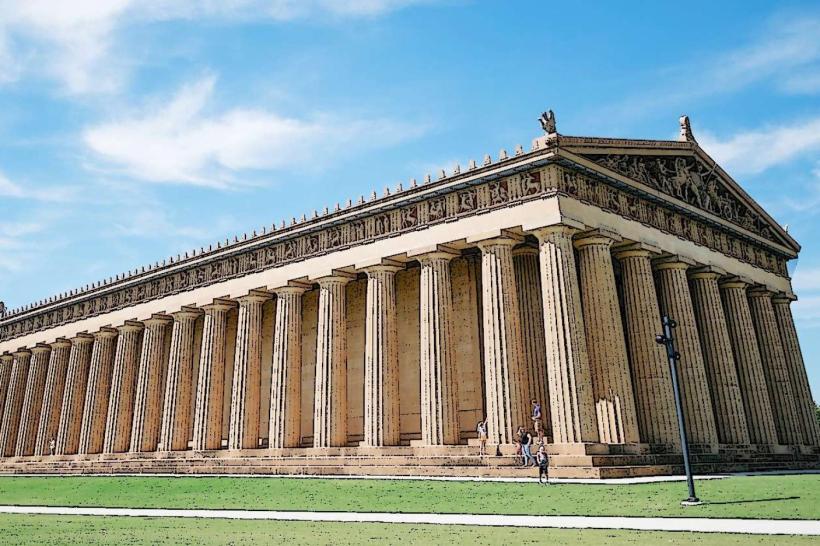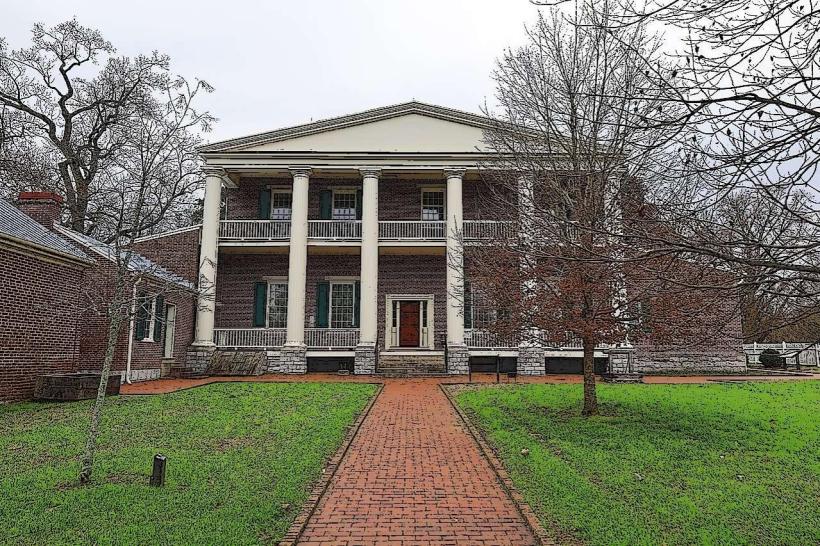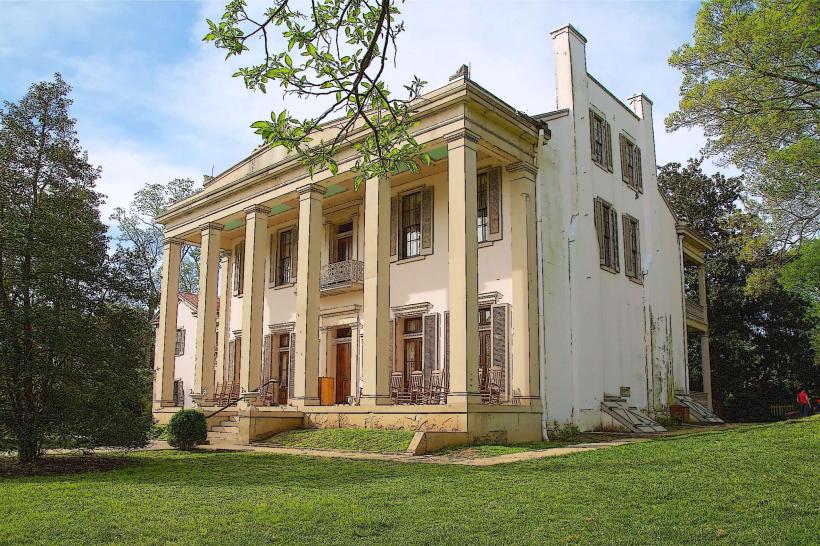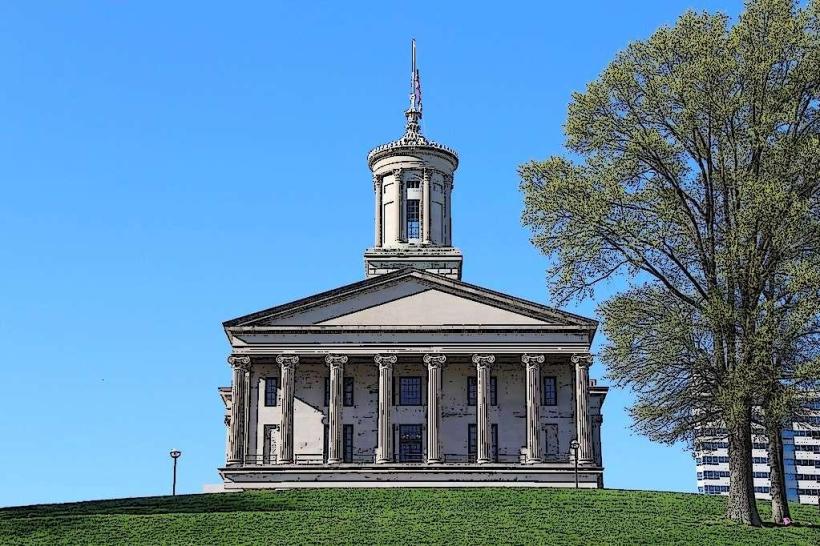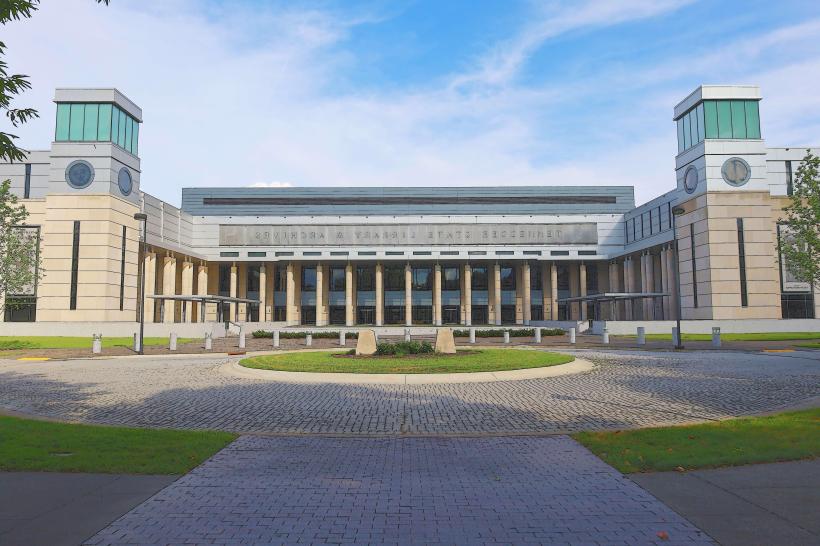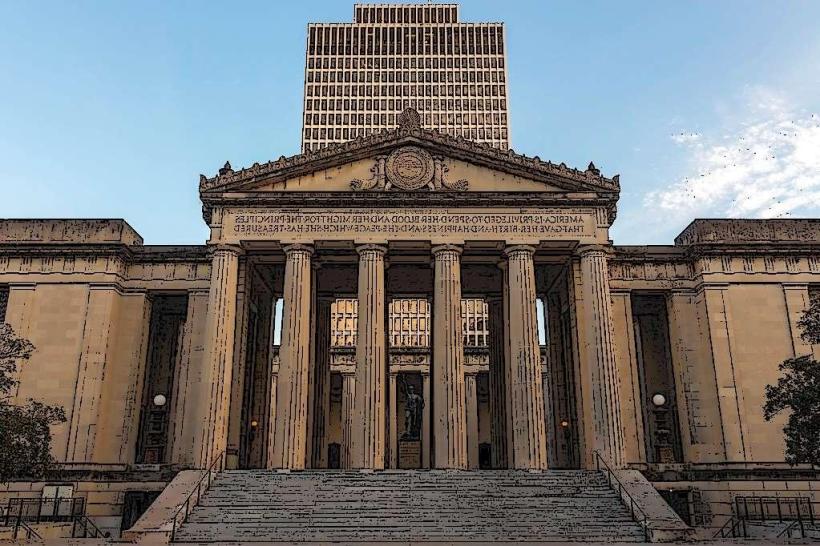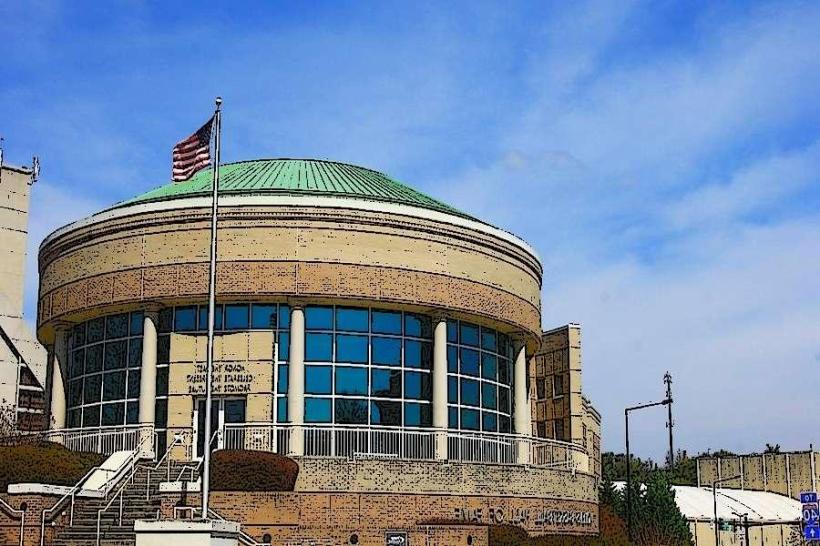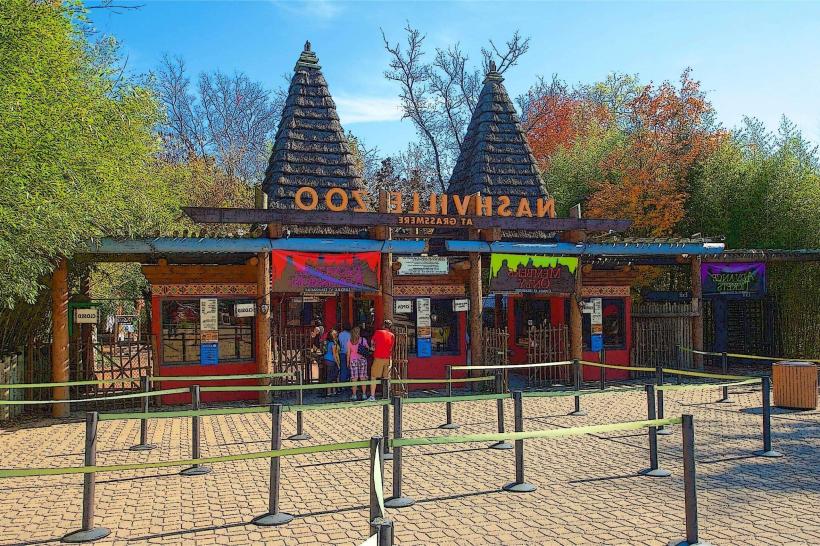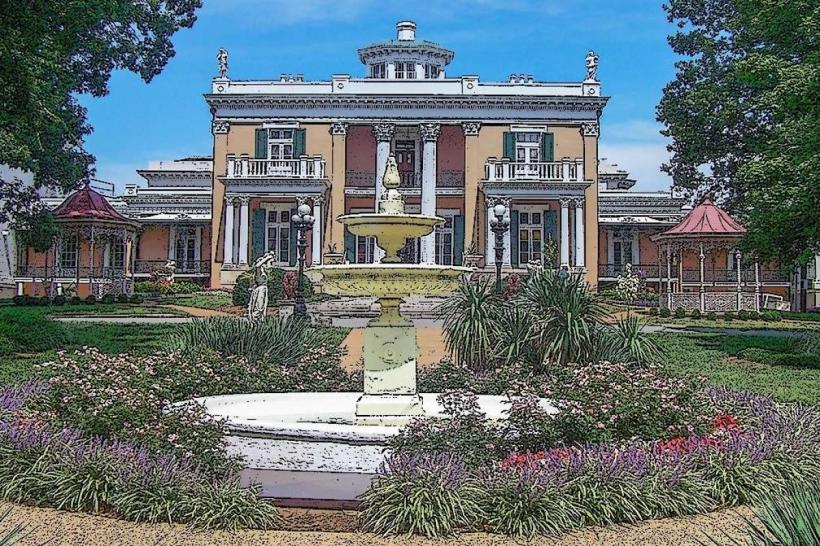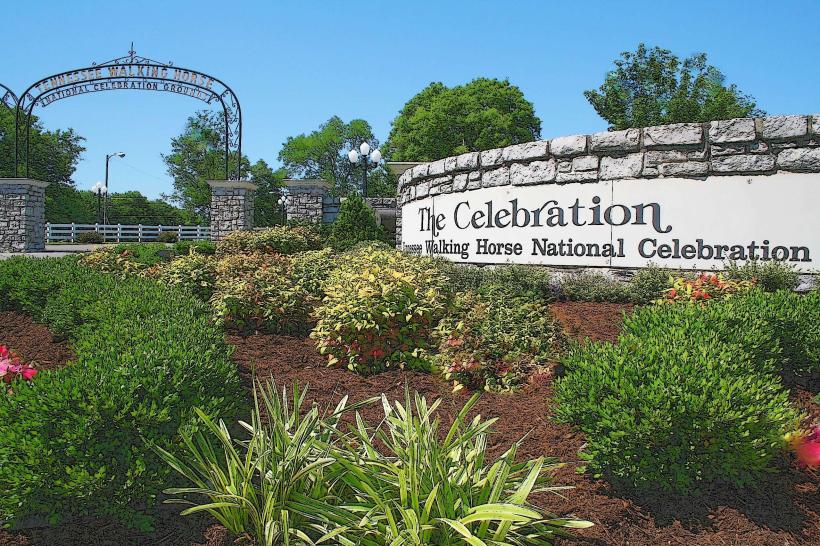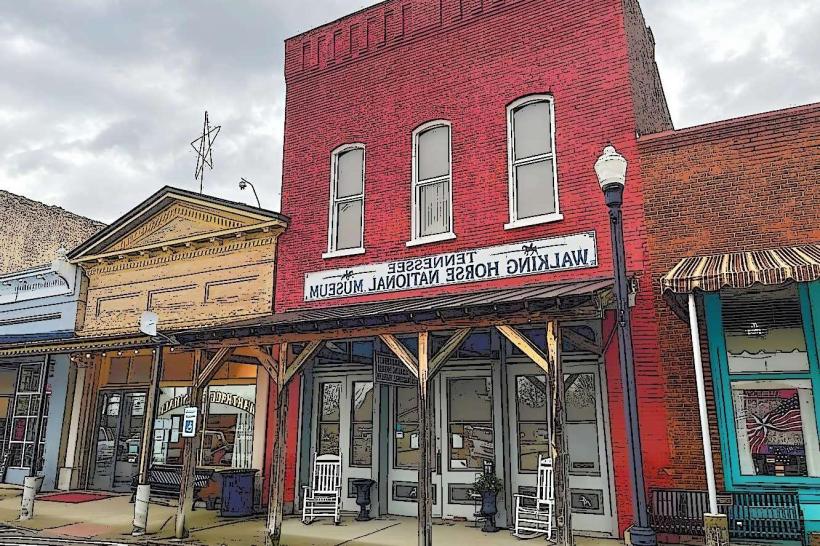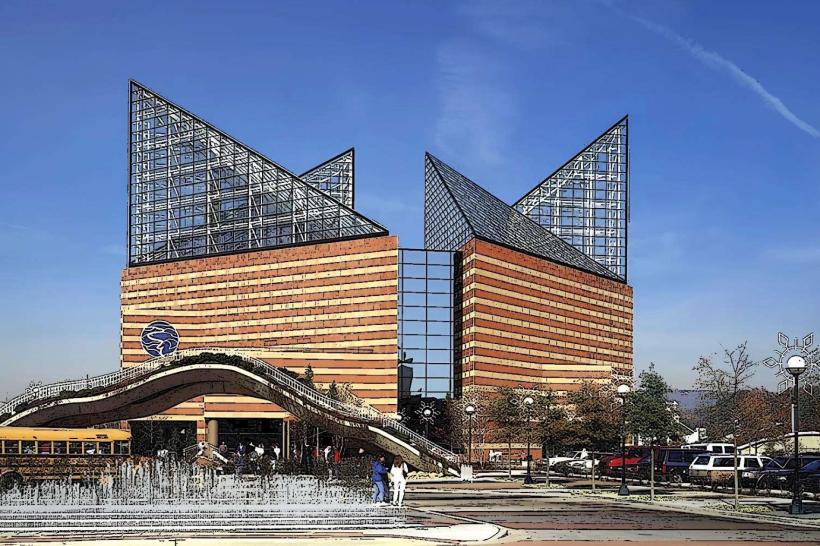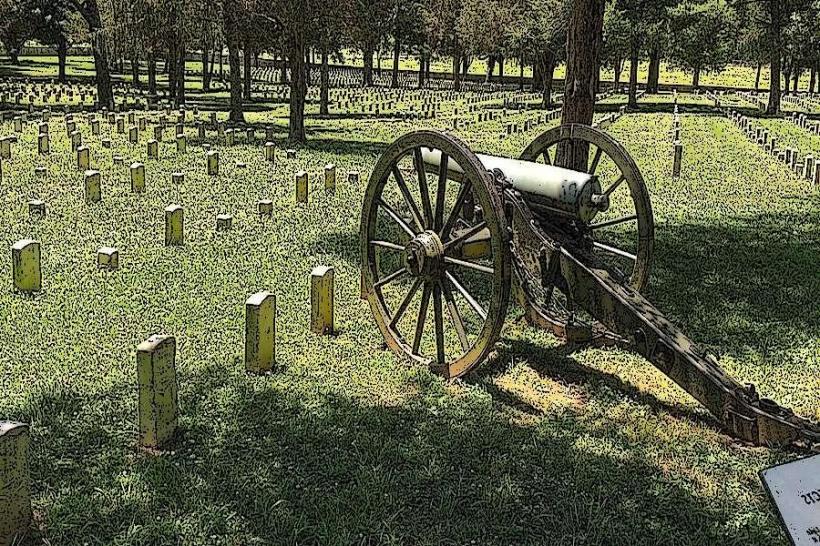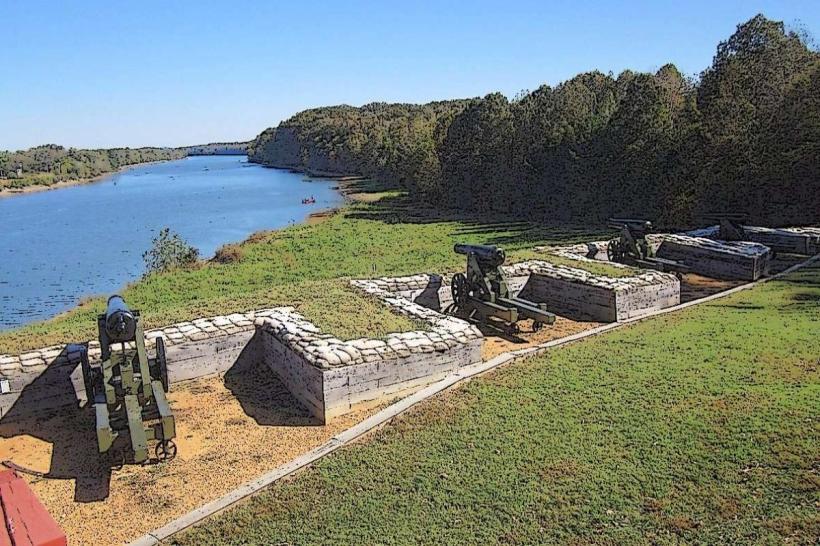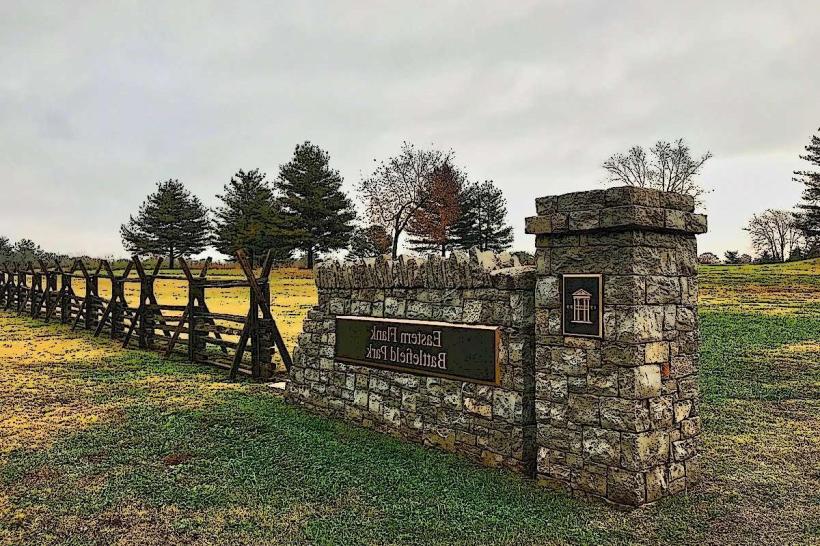Information
Landmark: East Tennessee Veterans MemorialCity: Nashville
Country: USA Tennessee
Continent: North America
East Tennessee Veterans Memorial, Nashville, USA Tennessee, North America
The East Tennessee Veterans Memorial, located in World’s Fair Park in Knoxville, Tennessee, is a profoundly meaningful tribute dedicated to honoring the military service members from East Tennessee who have given their lives in defense of the United States. It stands as both a memorial and an educational site, deeply rooted in respect, remembrance, and community engagement.
Historical Background and Inspiration
The memorial was officially dedicated on November 15, 2008, but its origin traces back to the vision of J. William “Bill” Felton III, a World War II veteran from East Tennessee. Felton’s inspiration came from a deeply moving visit to the Normandy beaches in France, where he witnessed the graves of American soldiers who fought in the D-Day invasion. Motivated to create a permanent and accessible memorial in East Tennessee to honor fallen heroes, Felton spearheaded the initiative, eventually leading to the establishment of the East Tennessee Veterans Memorial Association (ETVMA).
This memorial pays homage to more than 6,300 service members from 35 East Tennessee counties who died in military service from World War I through to current conflicts. The focus on East Tennessee counties connects the memorial directly to local families and communities, giving it a personal and regional significance.
Architectural Design and Layout
The memorial is a thoughtfully designed outdoor space that blends solemnity with dignity, accessibility, and natural beauty.
Granite Pylons
The central feature is a collection of 32 granite pylons, each standing 9 feet high, 3 feet wide, and 1 foot deep.
The names of fallen veterans are meticulously inscribed on these pylons. The names are organized by military conflict and county of residence, allowing visitors to locate individuals by both war and local area.
The pylons are arranged in a semicircle, forming a contemplative space that invites reflection.
The design prioritizes accessibility: the names are engraved low enough for easy reading from a wheelchair, ensuring that all visitors can engage meaningfully with the memorial.
Medal of Honor Recipients
On the reverse side of the pylons are the names of 14 East Tennessee Medal of Honor recipients, highlighting their exceptional valor.
This inclusion honors those who received the nation’s highest military decoration, distinguishing their extraordinary courage and sacrifice.
Bell Tower
At the heart of the memorial stands a 27-foot tall bell tower.
The four faces of the bell tower are inscribed with President Franklin D. Roosevelt’s Four Essential Freedoms:
Freedom of Speech and Expression
Freedom to Worship God in One’s Own Way
Freedom from Want
Freedom from Fear
This symbol serves as a powerful reminder of the values for which these veterans fought and died.
Flagpole and Plaza
The entrance to the memorial features a circular plaza dominated by a 50-foot flagpole, where the American flag is displayed continuously, illuminated at night.
The flag’s presence emphasizes patriotism and honors the sacrifices made in service to the nation.
Walkways and Seating
Polished granite walkways weave through the memorial, connecting the pylons and other key features.
Opposite each pylon are granite benches, providing visitors with places to sit, reflect, and contemplate in quietude.
The natural landscaping around the memorial includes shade trees and manicured lawns, creating a serene atmosphere conducive to remembrance.
Symbolism and Interpretation
The memorial’s design elements work cohesively to evoke a deep emotional and spiritual connection to the veterans it honors. The granite, a symbol of strength and permanence, represents the enduring legacy of those who served. The bell tower’s Four Freedoms inscriptions ground the memorial’s meaning in universal democratic ideals, while the flag and the arrangement of names personalize the tribute for the East Tennessee community.
The focus on inclusivity and accessibility allows people of all ages and physical abilities to engage directly with the memorial, fostering a sense of shared history and communal remembrance.
Educational Role and Community Engagement
The East Tennessee Veterans Memorial goes beyond being a static monument; it serves as an active educational resource.
The East Tennessee Veterans Memorial Association (ETVMA) manages a comprehensive online database containing information on every veteran named on the memorial. This database includes service records, photographs, and biographical details where available.
Visitors, historians, family members, and educators use this resource to deepen their understanding of the individuals commemorated and the conflicts in which they served.
The ETVMA regularly hosts public ceremonies and events, including an annual Reading of the Names, where volunteers read aloud the names of all those honored on the memorial. These events provide solemn moments for the community to gather, remember, and pay tribute.
Other educational programs and outreach initiatives help schools and local organizations learn about the region’s military history and the sacrifices of its veterans.
Visitor Experience and Practical Information
The memorial is open 24 hours a day, seven days a week, allowing visitors to experience the site at any time.
It is located within World’s Fair Park, a prominent public park in downtown Knoxville, easily accessible to locals and tourists alike.
Visitors typically access the memorial via nearby parking areas such as the World’s Fair North Lot or the Langley and Locust Street garages.
The site is well-maintained and designed to accommodate visitors in all seasons, with year-round landscaping and lighting.
Impact and Legacy
The East Tennessee Veterans Memorial is a vital cultural and historical landmark in Knoxville and the broader region. It functions not only as a place for personal mourning and reflection but also as a public testament to the sacrifices made for freedom and security. By focusing on East Tennessee service members, the memorial helps keep local histories alive, strengthens community bonds, and ensures that the stories of these veterans remain prominent in public memory.
Its dedication to education, inclusivity, and remembrance makes it an essential site for honoring past sacrifices while inspiring ongoing respect for those who serve.
In conclusion, the East Tennessee Veterans Memorial is a solemn, beautifully crafted tribute that combines thoughtful design, personal remembrance, and educational outreach to honor the military dead from East Tennessee. It stands as a lasting monument to courage, sacrifice, and the enduring values of freedom.




